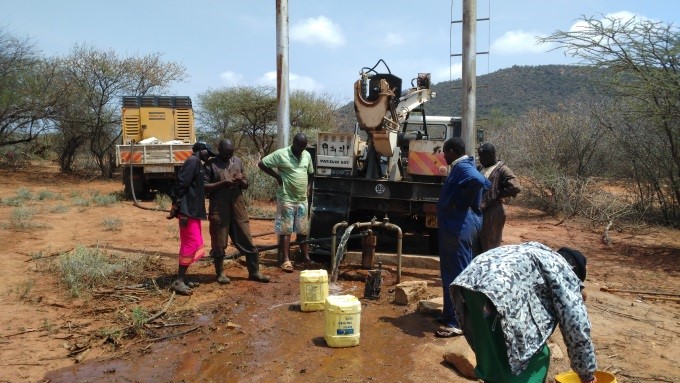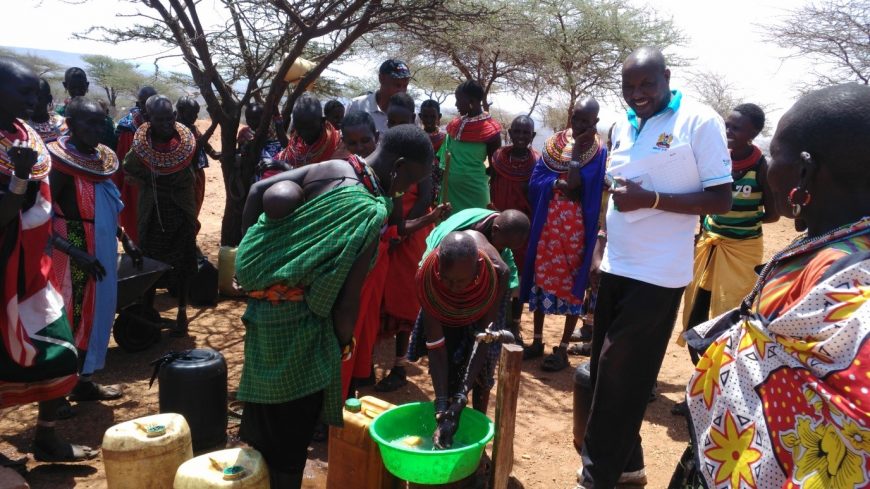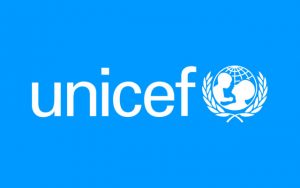
In Lenge’i village, Samburu County, access to safe water has for years been a big challenge due to poor infrastructural development. The area receives very little rainfall subsequently affecting the surface and sub-surface water recharge rates. Recurrent droughts have led to increased distances and time spent in search of safe water.
In Lenge’i village, only one borehole, drilled to the depth of 97 meters, is available for use, serving some 2,400 people. The borehole has a discharge rate of 1m3 per hour to sufficiently serve the community. “We were very privileged to have a borehole drilled in 2007 to provide safe water for the community,” said Arguel Lekumoisa, the former Assistant Chief of Lenge’i and a member of the Lenge’i Water User Committee. The only challenge the community has been facing is that since it was drilled, no plans were put in place to clean it. Due to increased use during the long dry season coupled with a lack of maintenance, the community has been struggling to channel water to the extended kiosk that serves nearby households. The productivity of the borehole reduced greatly during the extensive past drought, which prompted the community to seek for help to rehabilitate the borehole.
Cleaning the borehole to ensure access to clean drinking water for the community
ACTED, through the Water Department of Samburu County Government, and with financial support of UNICEF, was in charge of cleaning and flushing out sediments from the borehole to ensure access to clean drinking water for the community, while sensitizing community members on the importance of cleaning and maintaining the water infrastructure. “During the borehole cleaning process, we were shocked to see the dirty water and silt that came out of it,” said one of the community members. After the borehole was rehabilitated, community members witnessed an increased yield and were then able to pump and provide enough water for their tanks, cattle troughs and the water kiosk used by nearby villages. “We no longer queue for water as was the case before and our animals have enough water at the cattle trough. Our living standards have improved greatly with the support received from ACTED,” Mr. Arguel added.

After rehabilitation of the borehole, ACTED conducted hygiene promotion sessions to improve the communities’ hygiene and sanitation practices with a focus on hand wash during critical times. Moreover, and to avoid such problems at community level in the future, ACTED revived and trained a Water User Committee, now in charge of carrying out maintenance activities such as generator set cleaning, minor repairs and securing water points. Mr. Arguel promised to regulate water consumption and help minimize wastage as well as ensure that the generator used to pump water is well maintained.
